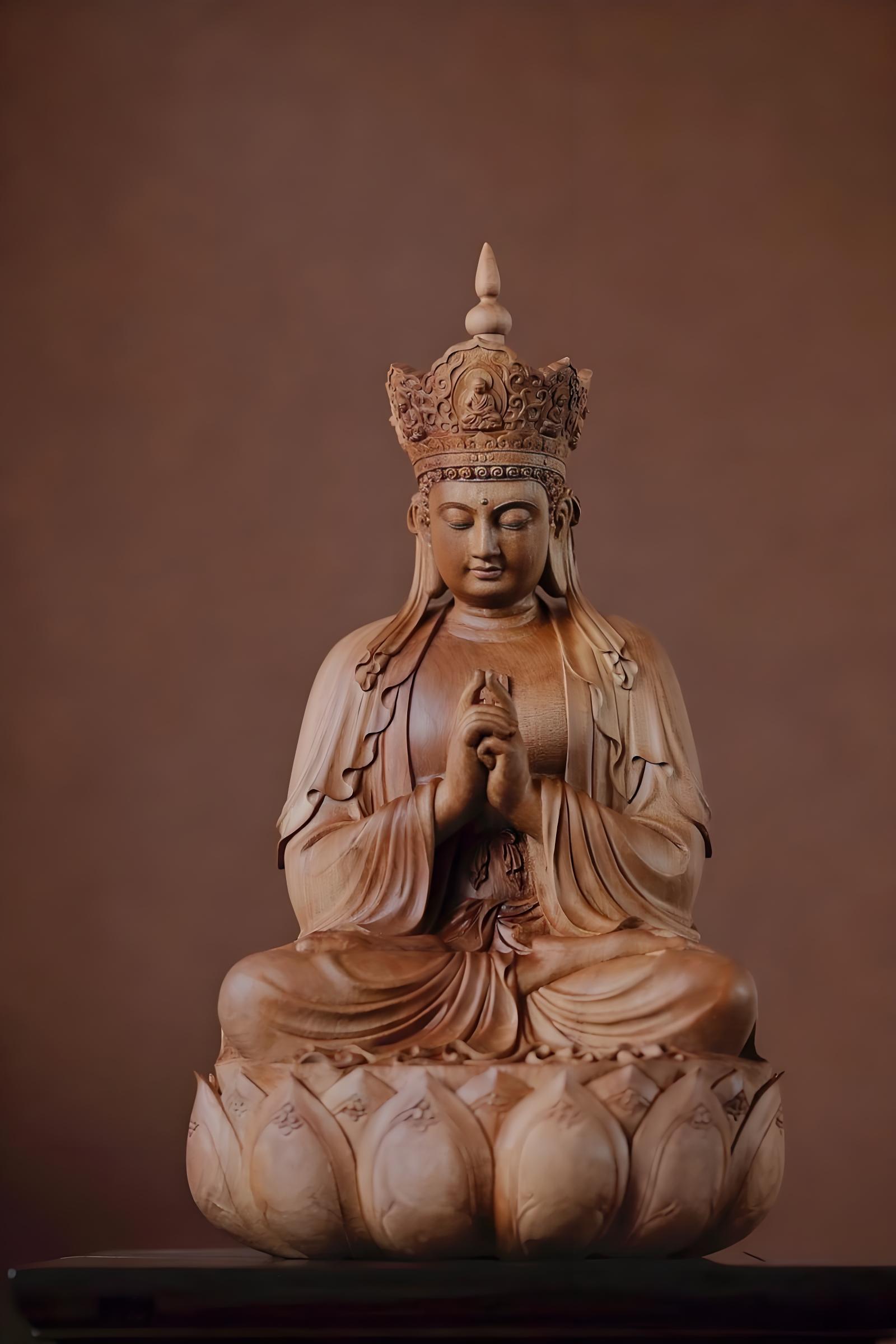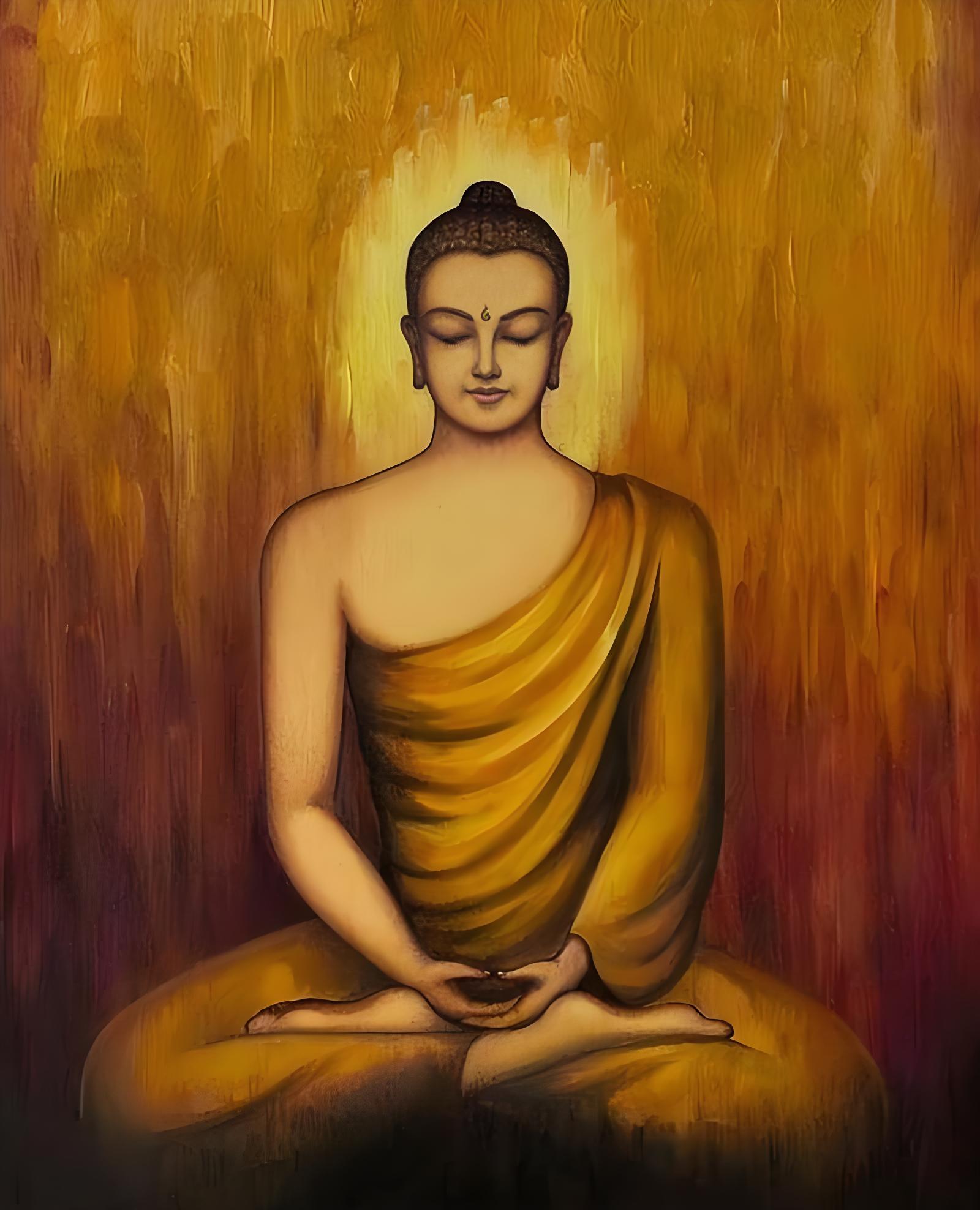The Teachings of Universal Worthy: Following the Buddha’s Path
The Avatamsaka Sutra, through the chapter on Universal Worthy’s practices, teaches us about Vairochana Buddha in this Saha world. From his initial aspiration for enlightenment, he advanced with unwavering diligence. He practiced boundless giving, even sacrificing countless lives, to reach enlightenment and achieve Nirvana. We should strive to emulate all of his actions.
Vairochana Buddha’s Countless Acts of Selfless Giving
In this Saha world, our original teacher, Vairochana Buddha, also known as Shakyamuni Buddha, began his journey with the aspiration for enlightenment. He was courageous and never retreated from his path. For example, in the practice of giving, he sacrificed immeasurable lives to save beings. Many of the Buddha’s past life stories illustrate this kind of giving.
The Story of the Prince Who Sacrificed Himself for a Tigress
The Lotus Sutra tells the story of Buddha, when he was a Bodhisattva, who gave his body to feed a hungry tigress. A mother tiger had just given birth to six cubs and was too weak to move. The cubs were desperately trying to suckle, but the mother tiger had no strength to hunt. The Bodhisattva, then a prince, saw their plight and decided to help.
He laid down beside the tigress, offering his body as food. (Bodhisattvas beyond the first stage of enlightenment can give up their bodies as easily as picking vegetables, without any pain). However, the tigress was too weak to bite. So, the Bodhisattva pierced his throat with a branch, letting his blood flow to the tigress. She then gained enough strength to eat his body.
His brothers found his remains, only a pile of bones and built a stupa. The location is said to be in Afghanistan, and the ground there is a unique red color, no matter how deep you dig, while the surrounding earth is normal.
Shakyamuni Buddha’s Countless Acts of Compassion
There are countless stories of Shakyamuni Buddha’s sacrifices to save sentient beings on our earth. Another example is the story of the Bodhisattva who gave his flesh to an eagle.
This story tells of a Bodhisattva who was diligently cultivating, generating great Bodhicitta (the mind of enlightenment). This moved the heavens and the God, Indra. Indra transformed himself into an eagle, and a celestial being into a dove, and sent them to test the Bodhisattva.
The dove flew to the Bodhisattva for protection, and he hid it. The eagle demanded the dove, saying it was his food and that the Bodhisattva was letting him starve. The Bodhisattva offered to give the eagle an equal weight of his own flesh. When they used a scale, it turned out that even after cutting all of his flesh, the Bodhisattva was still lighter than the dove. So the Bodhisattva climbed onto the scale, offering his whole body, at which point Indra revealed himself, praising the Bodhisattva’s sacrifice.
The Reality of Energy and Bodhicitta
These stories may sound like myths, but they hold truth when viewed from the perspective of energy and the Bodhisattva’s aspiration for enlightenment. While we cannot yet sacrifice our lives as a Bodhisattva would, we can at least practice mutual love and care.
The Consequences of Indifference
Recent news highlighted a tragic story in Nanjing, where two young girls starved to death in their home. This event shows the cold indifference that exists in society today. Their mother, a drug addict, had been arrested, leaving the children unattended. Neighbors ignored the children’s cries.
The older child, only four, somehow managed to open the door and search for food. A kind person found her, gave her food, and discovered her sister covered in waste. These kind strangers cleaned them and fed them, and then sent the children back home. When their mother was arrested again, nobody took care of the girls again. They died of starvation.
This demonstrates how a lack of care and empathy has caused suffering.
The Power of Mutual Kindness
A story from Jerusalem illustrates the importance of mutual care: an old man divided his property equally among his two sons. One son, realizing his brother had a family, secretly gave half of his share to his brother. The other brother did the same, thinking his brother is alone, and gave half to his brother. The next morning, they were astonished to find their stores still full. After this happened again the next night, they met and realized what had happened. They embraced and decided to never separate.
This place is now a holy site in Jerusalem, showing the human longing for kindness over wealth.
The Story of the Hong Kong Orchid Tree
In China, there are many such stories. The Hong Kong orchid tree is also a symbol of brotherly love. Two brothers planned to divide their inheritance. Everything was divided evenly but they could not split the tree in front of their house. They decided to cut it in half the next day, but they woke up to find the orchid withered. They then realized that their bond was deeper than any material gain. The brothers reunited, and the tree miraculously blossomed again.
The Importance of Compassion and Connection
We are not born to live solely for ourselves. We must be kind and care for others, as this gives us energy and purpose, and enables us to feel the joy of giving.
Although we cannot yet make the sacrifices of great Bodhisattvas, we can start with mutual love and kindness, which awakens our hearts and minds, making us more compassionate and aware.
Reflection and Self-Improvement
As the saying goes, “Reflect on your life in your free time, and contemplate your actions in stillness; always walk the right path with a focused mind, and nature will not betray you.”
A scholar from the Yuan Dynasty, Shi Bi, wrote “Jing Xing Lu,” which is full of advice on self-improvement. One saying is “Those who pass on loyalty and filial piety to their descendants will prosper; those who pass on cunning and trickery to their descendants will perish. Those who treat others with humility will be strong; those who protect themselves with goodness will be noble.” Therefore we must start by fostering these values.
The Path to Enlightenment
The Avatamsaka Sutra says, “Until achieving great enlightenment and entering Nirvana, I will follow all of the Buddha’s practices.” Bodhisattvas must perfect all six paramitas (perfections) to reach enlightenment. We must also continuously learn from the Buddhas.
From these stories, we see how Vairochana Buddha has saved us countless times. Even now, at this very moment, he continues to help us. This is why we have the opportunity to hear the Dharma and learn the “Treatise on Samadhi of Mindfulness of Buddha in the Avatamsaka Sutra.” We should be diligent, learn from the Buddha, and repay his kindness. content_copy download Use code with caution.


